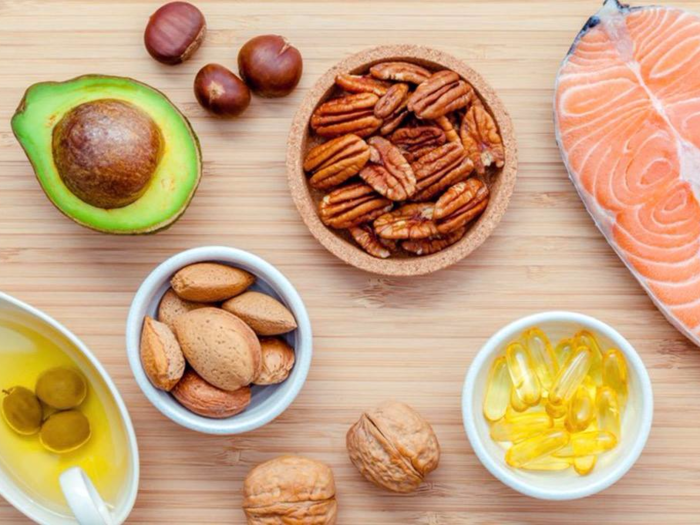- Home
- slideshows
- miscellaneous
- The most popular diets wealthy people want to try next year
The most popular diets wealthy people want to try next year
About 26.4% of wealthy survey respondents are interested in trying calorie restriction in 2019.

About 23.5% of wealthy people are choosing the low-carb diet.

Low-carb diets are a popular way to lose weight, and they do help reduce sugar intake. However, researchers are increasingly suggesting that this method could lead to premature death if followed for a long period of time.
A 2018 study, which examined more than 24,800 American adults, found that people who limited their carb intake had a 32% higher risk of dying than those who ate more carbs.
A low-carb diet can be followed in a variety of ways. The ketogenic diet, for example, encourages people to severely cut carbs and up their fat intake. Another variation, the Atkins diet, consists of initially limiting one's total carb intake — while eating a mix of healthy fats, protein, and high-fiber carbs — before slowly adding more net carbs to one's diet.
WW, the health and wellness company formerly known as Weight Watchers, came in third place. About 14.9% of wealthy respondents are interested in this program.

As part of the WW program, participants translate calories, sugar, proteins, and saturated fat into a points system that encourages them to eat more nutritious foods.
WW emphasizes flexibility more than restriction. Participants meet regularly with their coaches, who are not medical professionals.
About 13.8% of wealthy respondents want to eat less meat next year. While meat is a good source of protein, consuming a lot of it can be harmful.

Numerous studies have linked processed meat to heart disease and cancer, including bowel cancer. The WHO also says that any kind of red meat could be connected to an elevated risk of cancer.
The fifth-most popular option in the survey, just behind eating less meat, was "other" diets. About 12.6% of wealthy respondents chose this without specifying a particular one.
Roughly 11.5% of wealthy people want to try low-fat diets in 2019.

Consuming low-fat foods is not always healthier. While studies have shown that trans fats can elevate cardiovascular disease risk, low-fat foods generally include higher amounts of calories and sugar.
The low-fat diet has been popular for decades, but scientists have recently become more skeptical of it.
In October 2015, a study of more than 68,000 people found that low-fat dieters did not lose more weight than people on other diets.
Another 11.5% of wealthy respondents want to go on the ketogenic diet. This low-carb, high-fat diet can be a great option for losing weight.

Some benefits of the keto diet are clear. The method can help people lose weight and control their blood-sugar, and it can benefit children who have epileptic seizures.
However, people on the keto diet tend to reduce the healthier carbs they consume.
Recent studies have cast doubts on the benefits of long-term keto diets. In August, a study of more than 447,000 people found that eliminating entire food groups could lead to premature death. The keto diet essentially requires participants to eliminate lots of fruits and vegetables.
There is also some evidence that a low-carb diet like keto could lead people to become less tolerant of glucose and develop diabetes, though there is still little research on this link.
Read more: A cancer researcher who's been on the keto diet for 6 years explains how he does it
The gluten-free diet was also chosen by about 11.5% of wealthy respondents. There is little evidence that going on a gluten-free diet is beneficial to those who do not have celiac disease.

Eliminating gluten is crucial for those who have celiac disease. But in most cases, doctors say going gluten-free is not healthy.
Peter Green, the director of the Celiac Disease Center at Columbia University, previously told Business Insider that people on a gluten-free diet have higher levels of heavy metals like arsenic and lead. This could be caused by the large amounts of rice that gluten-free people eat, since rice can absorb these metals at higher rates than other grains.
Gluten-free dieters should consult with a dietitian, Green said.
Only about 8% of wealthy respondents are interested in a vegetarian diet.

According to The Washington Post, the percentage of vegetarians within the US population has not changed significantly in the last several years.
Vegetarians tend to weigh less than people who eat meat, according to some observational studies.
Going vegetarian could have significant health benefits. Studies have linked vegetarianism with lower chances of heart disease and cancer.
Recent studies suggest that the Mediterranean diet may be the best option for maintaining a healthy body and brain. This diet was tied for seventh place with about 8% of wealthy respondents choosing it.

The Mediterranean diet emphasizes healthy fats, proteins, and vegetables.
A study published in May suggested this diet could also help reduce the symptoms of depression. The study participants also saved about $26 per week by not following a traditional diet.
Other diets — including veganism, the South Beach diet, Whole30, the 5:2, and the Paleo diet — were not as popular among the INSIDER survey's wealthy respondents.
SurveyMonkey Audience polls from a national sample balanced by census data of age and gender. Respondents are incentivized to complete surveys through charitable contributions. Generally speaking, digital polling tends to skew toward people with access to the internet. SurveyMonkey Audience doesn't try to weight its sample based on race or income. Total 1,037 respondents polled November 23-24, 2018, margin of error plus or minus 3.15 percentage points with 95% confidence level.
Popular Right Now
Popular Keywords
Advertisement